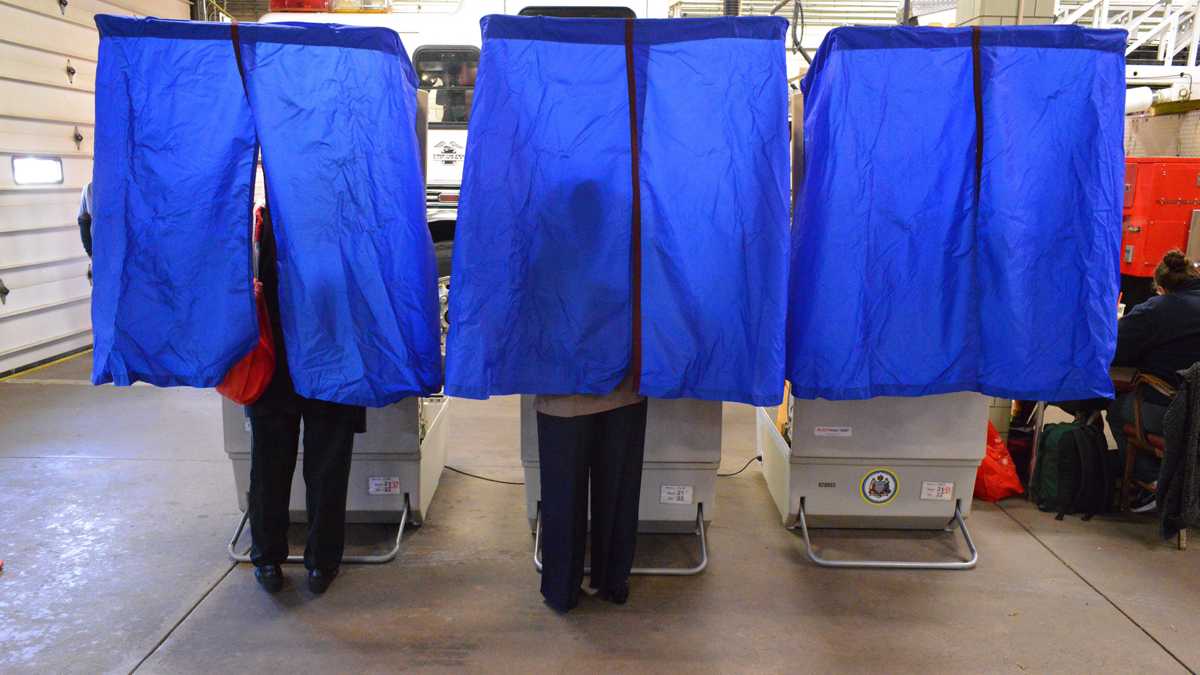How to become a judge in Philly: get lucky

Voters cast their ballots on Election Day. (Bas Slabbers/WHYY)
If you’re good at rolling dice or playing the numbers, you might have the key ingredient to becoming a Philadelphia judge: luck. That’s the finding of a new study by Jonathan Tannen, director of research for Econsult Solutions.
Tannen’s review of Common Pleas Court primary elections for a seven-year period found that a judicial candidate’s ballot position, determined by a random drawing, may be the single most important predictor of winning a seat on the bench.
“The candidate in the first ballot position won every single election between 2009 and 2015,” Tannen said in a phone interview.
While the finding is striking, it isn’t all that surprising. In a typical election, dozens of judicial candidates compete for a limited number of seats, and most voters have no idea who any of them are.
So if you’re the top left position on the ballot, right across from the name of the office, you’re going get to a fair number of random hits from uninformed and distracted voters.
In his study, Tannen tried to assess the effect of several factors: the Philadelphia Inquirer endorsement, the backing of the Democratic and Republican parties, and the recommendations of the bar association, which reviews every candidate’s qualifications.
“The Bar Association in this analysis appears to have only a trivial effect,” Tannen said, though he added that in elections when the Inquirer adopts the Bar Association’s recommendations in its endorsements, the picks pack a lot more punch.
But nothing seemed have as much impact as ballot position, which is determined before the election in a random drawing.
Tannen noted that ballot position may also affect other factors: Political players considering endorsements might not want to waste one on a candidate with terrible ballot position. And some candidates will drop out or campaign less seriously if they get a bad draw.
Tannen notes that there are factors he didn’t include, such as campaign spending, union support and the endorsements of elected officials or individual ward organizations.
But the central point of his sophisticated mathematical modeling will get no argument from veterans of judicial elections – that the most important moment in your campaign may be when you try your luck and pick a ballot position.
Note: An earlier version of this story (and the Econsult report) incorrecrtly stated that Philadelphia judicial candidates get their ballot positions by drawing numbered balls from a coffee can held by city election officials. That is how ballot positions are determined for other city offices, but Philadelphia City Commission Co-chair Al Schmidt says Common Pleas Court ballot positions are drawn in Harrisburg.
WHYY is your source for fact-based, in-depth journalism and information. As a nonprofit organization, we rely on financial support from readers like you. Please give today.


